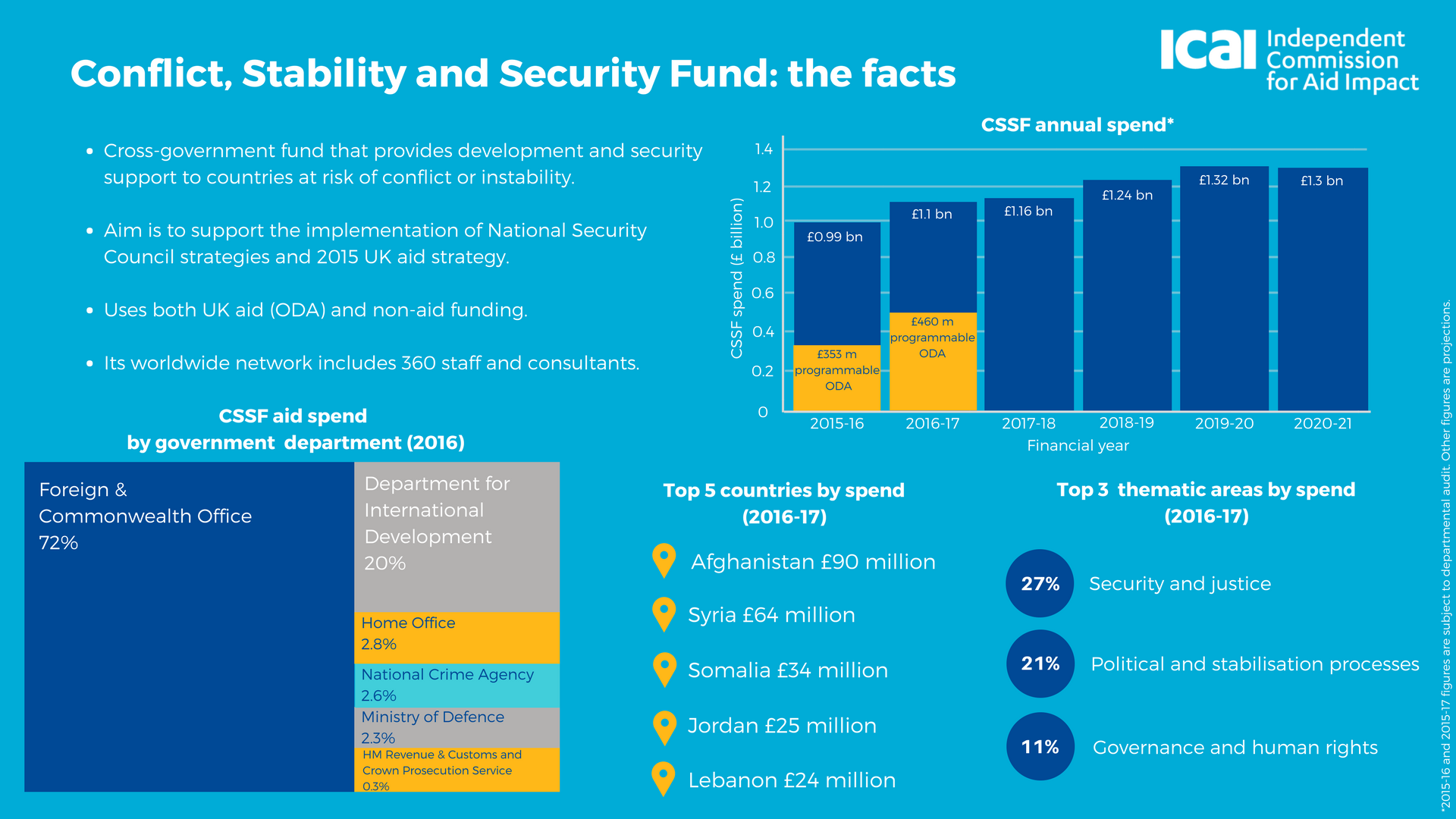The Conflict, Stability and Security Fund’s aid spending
Shortcomings in aid programmes delivered as part of the government’s CSSF are undermining its contribution to building peace, stability and security.

Read the review
- HTML document
- PDF download (2 MB)
- Published: 29 Mar 2018
Review
This review was published in March 2018 and awarded an amber-red score, as ICAI found shortcomings in aid programmes delivered as part of the government’s CSSF were undermining its contribution to building peace, stability and security. We made six recommendations to the government.
Findings
The CSSF is a flexible and responsive instrument for supporting the implementation of National Security Council strategies. Its programmes are well informed on conflict dynamics, and its programming is able to adapt and stay relevant in volatile contexts. However, the country and regional portfolios we have seen often lack a clear logic connecting the activities they support to the objective of promoting sustainable peace, stability and security.
Results management practices are inadequate, given the scale of the funding. As a result, there is little reliable data on whether projects are achieving their intended results or delivering value for money. While we saw good quality programming in some areas, most of the programmes we reviewed showed design or implementation flaws, and at times the approach was contrary to the available evidence of what works. The CSSF does, however, have some good practices on gender and conflict sensitivity.
The CSSF has introduced some useful learning processes but does not give enough attention to capturing or sharing learning from its own experience. Given its size, the CSSF’s efforts to fill global evidence gaps are modest.
Recommendations
- The CSSF should introduce country or regional plans specifying how its portfolios of aid programmes and influencing efforts will contribute to achieving NSC objectives, the intermediate outcomes that the portfolios
will achieve, and the assumptions that need to hold for this to happen. - Where the CSSF projects are intended to support diplomatic access and influence, the influencing objectives should be explicit and progress reported so that the value for money of the investment can be confirmed.
- Programmes should demonstrate more clearly and carefully how they identify, manage and mitigate risks of doing harm.
- The CSSF should address gaps in its results management and in its assessment of value for money of existing programmes as soon as possible. Meanwhile, it must ensure that all new programming includes adequate results management and measures to assess value for money.
- The CSSF should create conditions that allow for the evaluation of a larger part of its portfolio. Independent reviews and evaluations of the Fund’s work should be undertaken where it is possible to do so.
- The CSSF should synthesise the evidence on what works in its most important programme areas, both from its own experience and from the literature, and share this with participating departments and implementing partners in the form of thematic guidance.
The CSSF
For more facts and figures about the CSSF, see our infographic:
View the infographic
- PDF download (534 KB)
- Published: 29 Mar 2018
